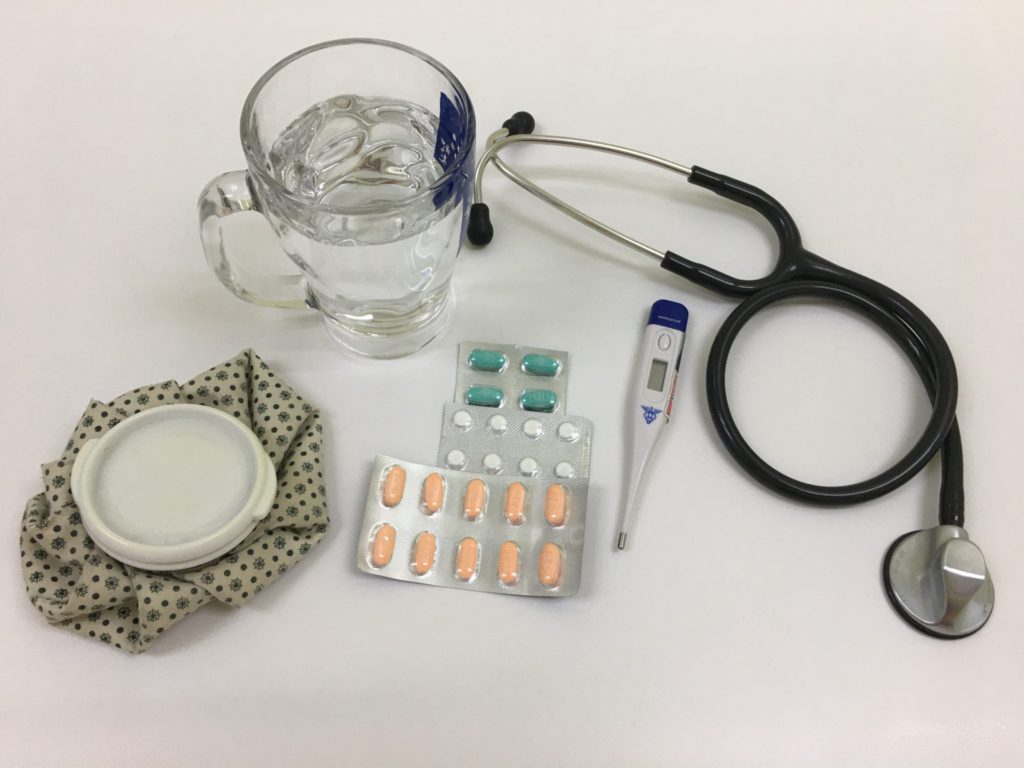
When we get ill or develop uncomfortable symptoms, this is our body’s way of communicating with us. It’s important to listen and respond as soon as possible to correct the imbalance before it develops into a more chronic condition. Whilst we can adapt our diet or lifestyle to support our body to heal, it can be more complicated than this. This is where functional testing can be so useful in order to get to the core of the imbalance.
Getting a blood test at your local G.P can help greatly in this process with some simple blood tests that will identify many pathologies. However, the G.P has very limited time to identify any wider, underlying issues, as well as having to keep within a limited budget from the NHS, to perform more comprehensive testing. This is where private testing can be very useful, and a lot more comprehensive to really get to the bottom of your symptoms.
Functional tests are biological tests, performed in a laboratory, which indicate how well the body’s systems are functioning. They help to identify deficiencies, excesses and imbalances which may underlie health difficulties, prevent recovery or increase disease risk. The test may involve taking a saliva, blood, urine or stool sample for laboratory analysis. Tests can either be taken at home, but some may require blood to be drawn by a nurse or phlebotomist.
Laboratory Testing
 Laboratory testing is an extremely useful tool for the nutritional therapist to get to the core of what is going on in your body. It takes a lot of guesswork out of the case analysis and allows much faster resolution of the problem to get the body back to balance. For example, any one of a number of parasites, yeasts or bacteria may be causing your digestion symptoms – testing should identify which one, allowing for more targeted and efficient therapy. Similarly, you may be unsure about which foods may be causing signs of intolerance, again testing will give a more accurate picture.
Laboratory testing is an extremely useful tool for the nutritional therapist to get to the core of what is going on in your body. It takes a lot of guesswork out of the case analysis and allows much faster resolution of the problem to get the body back to balance. For example, any one of a number of parasites, yeasts or bacteria may be causing your digestion symptoms – testing should identify which one, allowing for more targeted and efficient therapy. Similarly, you may be unsure about which foods may be causing signs of intolerance, again testing will give a more accurate picture.
Nutrigenomics – the way forward
A new and exciting area of testing relates to the field of Nutrigenomics, which looks at the relationship between, diet, lifestyle and genetic expression, and lays the foundation for personalised nutrition and preventative medicine. The Human Genome Project which started in the 1990’s, to map the human genome sequence kick-started the nutrigenomics field of research.
You may be more familiar with Ancestry DNA testing, but this is different. A Health DNA test looks instead at the DNA coding that is involved in a number of biological processes within our body, such as enzyme production, or detoxification pathways. We are all subject to genetic mutations, either inherited or created by our lifestyle. These are called SNP’s (single nucleotide polymorphisms), and by understanding which biological processes are affected by SNP’s, we can take preventative action with the right nutrients and lifestyle. Genetic testing gets to the basis of our biochemistry, and also supports the theory of epigenetics and how environmental factors affect gene expression. One of these areas is diet, such as consuming a high GI (glycaemic index) diet is associated with an SNP on the Adiponectin gene, which contributes to insulin resistance and Type 2 Diabetes. Disease susceptibility becomes apparent through DNA testing, and preventative measures can be adopted before the disease manifests.
What can functional testing tell us?
Functional testing is a vital part of the jigsaw when working to achieve optimum health, and can support nutritional therapists in assisting clients in all areas of health from digestive wellness, hormone health and infectious diseases, to food sensitivities, autoimmune conditions and emotional wellbeing.
 It is vital for a Nutritional Therapist to be able to evaluate the actual nutrient levels of a chronic disease patient, especially when both the diet analysis and the symptoms strongly suggest deficiencies. There are 100’s of different tests available, and the therapist needs to select the right test. Levels of vitamins, minerals and essential fatty acids levels can often be sufficient to indicate whether a nutritional deficiency is causing a chronic condition. Occasionally, the therapist may decide to look at other markers such as toxicity levels or suggest an Organic Acid Test (OAT) which is extremely useful in complex diseases when several imbalanced systems are involved in the condition. OAT evaluates bacterial and yeast overgrowth, vitamins and fatty acids metabolism, mitochondrial and neurotransmitters metabolites, detoxification and antioxidant system. OAT can be used both as an initial clinical screening tool or as an advanced test.
It is vital for a Nutritional Therapist to be able to evaluate the actual nutrient levels of a chronic disease patient, especially when both the diet analysis and the symptoms strongly suggest deficiencies. There are 100’s of different tests available, and the therapist needs to select the right test. Levels of vitamins, minerals and essential fatty acids levels can often be sufficient to indicate whether a nutritional deficiency is causing a chronic condition. Occasionally, the therapist may decide to look at other markers such as toxicity levels or suggest an Organic Acid Test (OAT) which is extremely useful in complex diseases when several imbalanced systems are involved in the condition. OAT evaluates bacterial and yeast overgrowth, vitamins and fatty acids metabolism, mitochondrial and neurotransmitters metabolites, detoxification and antioxidant system. OAT can be used both as an initial clinical screening tool or as an advanced test.
Gastrointestinal complaints are extremely common and can be caused by multiple factors from low acidity, to bacterial dysbiosis or inflammatory diseases such as coeliac or Crohn’s. The gut interacts with every other system in the body, and gut symptoms can often manifest in areas such as the immune or nervous systems. The Comprehensive Stool Test is a very useful tool for therapists to assess the microbiome balance, digestive hormones and inflammation.
Another useful test is the DUTCH hormone test to evaluate if there is an endocrine system dysfunction. Hormones are fundamental to almost all biological functions, and suboptimal performance of the endocrine glands is a common cause of many chronic conditions.
What does it Cost?
Functional/diagnostic tests can be pricey due to being performed by private laboratories. Prices vary from £45 to £70 for a nutrient deficiency (i.e Vitamin D or B12) test, to £260 for the OAT or Comp Stool test, going up to £400 for comprehensive Hormone testing. Depending on the condition, the therapist will communicate with the G.P, to recommend certain tests to be done on the NHS. However, as G.P’s are often restricted by government guidelines, comprehensive testing may not be possible. Any tests that can’t be done by the G.P, will be recommended and discussed with the client to ensure the best possible outcome.
The cost of testing could be equated to the cost of servicing your car or maintaining your home. Is your health a priority to you? An investment in maintaining your health and preventing chronic disease from developing later in life should be considered priceless.




0 Comments